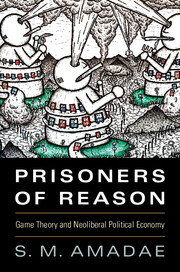9 - Collective Action
from PART II - GOVERNMENT
Published online by Cambridge University Press: 18 December 2015
Summary
The facts that there is a lot of collective action even in many large-number contexts … and that, therefore, many people are not free riding in relevant contexts suggest [that] … the actors in the seemingly successful collective actions fail to understand their own interests.
Despite the fact that people regularly grasp the incentive to free ride on the efforts of others in many contexts, it is also true that the logic of collective action is hard to grasp in the abstract. The cursory history… [of collective action] suggests just how hard it was to come to a general understanding of the problem. Today, there are thousands of social scientists and philosophers who do understand it and maybe far more who still do not. But in the general population, few people grasp it. Those who teach these issues regularly discover that some students insist that the logic is wrong, that it is, for example, in the interest of workers to pay dues voluntarily to unions or that it is in one's interest to vote …. It would be extremely difficult to assess how large is the role of misunderstanding in the reasons for action in general because those who do not understand the issues cannot usefully be asked whether they do understand. But the evidence of misunderstanding and ignorance is extensive.
Russell Hardin, 2003The failure of collective action in large-scale interdependent efforts, this chapter shows, is the consequence of causal negligibility rather than the intention to free ride on others’ efforts. Rational choice theory puts forward a different explanation: that collective enterprises are doomed to failure because of the overriding logic of the Prisoner's Dilemma game, extended from two individuals to countless individuals. This deep-seated worry over individually enacted globally destructive action, which resonates with contemporary concerns over climate change, overfished seas, and boycotts, has been labeled “the tragedy of the commons,” and the free rider problem. Just as in a two-person PD game, individual self-interest recommends defecting and thus leads to mutual impoverishment, so, too, in a situation with multiple persons, such logic will necessarily lead to the failure of collective action, whether in the case of an environmental commons or the provision of public goods such as infrastructure.
- Type
- Chapter
- Information
- Prisoners of ReasonGame Theory and Neoliberal Political Economy, pp. 224 - 244Publisher: Cambridge University PressPrint publication year: 2016



